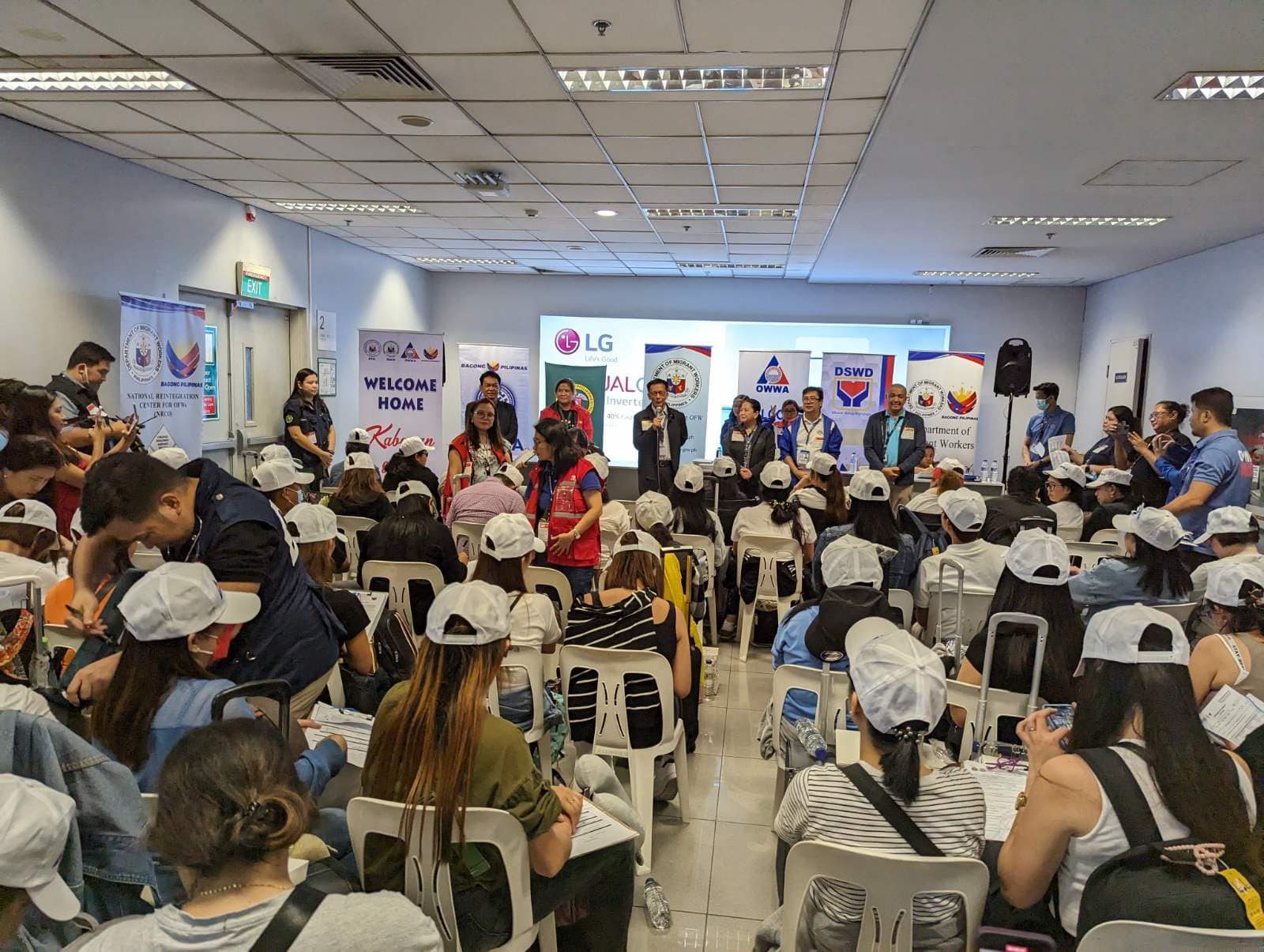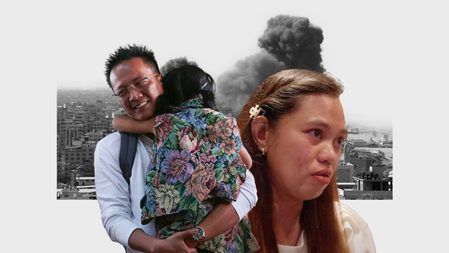SUMMARY
This is AI generated summarization, which may have errors. For context, always refer to the full article.

MANILA, Philippines – Only a “very small percentage” of the overseas Filipino workers (OFWs) who were repatriated from Israel are returning to their jobs in their host country, the Department of Migrant Workers (DMW) said on Thursday, May 9.
The Philippines on Thursday repatriated 60 OFWs from Israel, the largest batch so far since war broke out between Israel and Palestinian militant group Hamas in October 2023. Since then, the government has so far repatriated at least 666 Filipinos from Israel, along with an additional 213 from Lebanon and Palestinian territories Gaza and West Bank.
In a press briefing following a welcoming activity for the homecoming batch, Migrant Workers Secretary Hans Cacdac said that some 10 to 15 OFW repatriates have returned to Israel.
“But we consider that as a very small percentage of the 666 who had returned. So, most still, by and large, are here in our country,” he said.
At the time the war broke out in October, the Philippine government said there were around 30,000 OFWs in Israel, which means that only a minority opted for repatriation.
Cacdac did not directly answer a question on whether returning to Israel was discouraged by the DMW, but said the department’s primary job was to get Filipinos “out of harm’s way.” The government has maintained Alert Level 2 for Israel, which means there is no new deployment to the country. Repatriation is not mandatory yet either.
“The job essentially is to get them out of harm’s way. And since we are not in mandatory repatriation yet, we still leave it to the best judgment of the OFW if he or she will return,” he said in a mix of English and Filipino.
The DMW said the department, together with its attached agency the Overseas Workers Welfare Administration, distributed P100,000 worth of reintegration support to each of the repatriates. They also received livelihood aid worth P20,000 from the Department of Social Welfare and Development, skills training vouchers from the Technical Education and Skills Development Authority, and on-site checkups from the Department of Health.
The benefits of Filipinos who choose to return to Israel will not be forfeited, Cacdac said. The department also continues to monitor the well-being of those who returned.
Among the Filipinos who have chosen to return to Israel is caregiver Jimmy Pacheco, who was taken hostage by Hamas during the October 7 attack. His wife Clarice Pacheco earlier told Rappler that her husband believed that returning to his job there, despite being assured lifetime financial assistance from the Israeli government, was still what he believed was the best way he could provide for their children.
Meanwhile, repatriated caregiver Teresita Dagdag told reporters in the Thursday briefing that the reason she returned home only months after the conflict began was because she wanted to stay by her ward’s side.
Even before October 7, Dagdag said that she had already planned to go home for good. But her disabled ward refused to be attended to by anyone else.
“Kahit gustong-gusto ko nang umuwi po, eh dahil na rin po sa pagmamahal ko sa kanya…kahit po nasa gitna ng giyera, hindi po natin iiwan ‘yung ating mga alaga,” she said.
“‘Yung alaga ko ay bingi. Hindi po siya makarinig. Kahit na sumasabog na po ‘yung bomba, hindi po niya naririnig. So, ako po ‘yung naging ear niya, ako po ‘yung eye niya, ako po ‘yung kamay at paa niya,” she added.
(Even if I wanted to go home so badly, I didn’t leave her even in the middle of the war because of my love for her…. My ward is deaf. She couldn’t hear a thing. Even when the bombs were exploding, she couldn’t hear them. So I was her ear, her eyes, her hands, and her feet.)
Her ward contracted COVID-19 in February, which she later succumbed to. It was then when Dagdag decided it was time to go home.
Asked if the DMW expects more OFWs to request repatriation, Cacdac said that it will depend on the situation on the ground.
“As long as there’s an OFW out there in this particular case, [in] the state of Israel with the state of war, and they feel anxious, then please, the Philippine government is here open and willing to serve you,” he said.
Tensions continue in Israel and Palestine months after the war broke out. On Tuesday, May 7, the Israeli military seized control of the Rafah border crossing which separates Gaza from Egypt.
More than a million people have sought refuge in Rafah, living in tented camps and makeshift shelters. Heeding Israeli orders to evacuate, many Palestinians in Gaza have attempted to leave, but with large areas of the coastal enclave already laid to waste, they say they have nowhere safe to go. – with a report from Reuters/Rappler.com
Add a comment
How does this make you feel?






There are no comments yet. Add your comment to start the conversation.